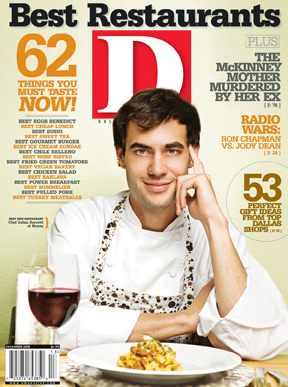Two methods are generally accepted for defining the top universities in America. The best American research universities are ranked by the Center for Measuring University Performance. To be listed, a university must meet its criteria in research funding, outside grants, doctorate programs, faculty awards, and five others. Baylor College of Medicine, Rice, Texas A&M, UT Austin, and UT M.D. Anderson make the cutoff in the top 25.
Weighted more to the undergraduate experience, U.S. News & World Report ranks the top 100 Tier 1 national universities. On this list are Rice, Texas A&M, UT Austin—and SMU.
When Gerald Turner arrived at SMU 13 years ago, it was a nice regional school known mainly for an athletic scandal and its social life. It was a place of small ambitions. Today UT Austin ranks at number 47 on the U.S. News list, Texas A&M at 64, and SMU at 66.
How did SMU pull itself up so rapidly to join the Texas super universities on the list? Gerald Turner is definitely not a man of small ambitions. Since becoming president, he has set consistently higher goals, while changing a culture of complacency into a culture of higher expectations. By recruiting some of the top talent in the nation to serve as his deans, he has upgraded the faculty throughout the institution. He embarked on a building campaign to enlarge and remake the campus, raised $545 million (40 percent of which came from non-alumni) to finance it, and tripled the size of the endowment to $1.4 billion. Meanwhile, the quality and selectivity of incoming students has improved, research grants have tripled, and enrollment of international students has doubled.
But that’s not good enough. In a culture of expectations, the crossbar keeps moving higher. Turner and his board are convinced SMU can dance at the same party as its United Methodist cousins: Duke (No. 8 on the U.S. News list); Emory, the university that Coca-Cola built (18); Northwestern (12); USC (27); and Vanderbilt (tied for 18), all of which have long ranked among the very best.
SMU last month announced plans to raise $750 million more (and simultaneously announced that it already had $317 million in commitments). To get an idea of Turner’s ambition, follow the money:
› $200 million for undergraduate scholarships, study-abroad opportunities, graduate fellowships, and leadership programs. Objective: attract the brightest students.
› $350 million for endowed chairs, faculty research, more graduate programs, and better facilities. Objective: attract outstanding teachers and graduate students.
› $200 million for residential colleges (hello, Harvard), student services, more athletic facilities, and its off-campus programs in Taos and Plano. Objective: improve the campus experience.
Scholarships, graduate fellowships, endowed chairs, residential colleges: these are where the rubber meets the road on the way to building a great university.
Can SMU be a Harvard or a Duke? Perhaps in a hundred years. But look at it this way. In compiling its data, U.S. News takes the highest scorer in all its criteria (this year it is Harvard) and assigns it a value of 100. SMU, by comparison, achieved a value of 47. Midway between the two is Tufts, an excellent school in Boston of comparable size to SMU and a top research university, with a value of 70. SMU may never be a Harvard or a Duke, but it can certainly be a Tufts, which ranks at 28 on the U.S. News list. With the kind of financial support it is now seeking, it could be a Tufts within a decade.
What would it mean to have a Tufts in Dallas, with students and faculty of its caliber? Anyone who has spent time at some of the nation’s great universities can tell you. The intelligence is palpable.
Dallas needs a top research university. My hope is that UT Dallas, UT Arlington, and UT Southwestern can collaborate to create one, and that the Legislature will finally understand the need to fund it. In the meantime, our little private university on the Hill is forging its own path, fueled by private money and driven by one man’s vision.






